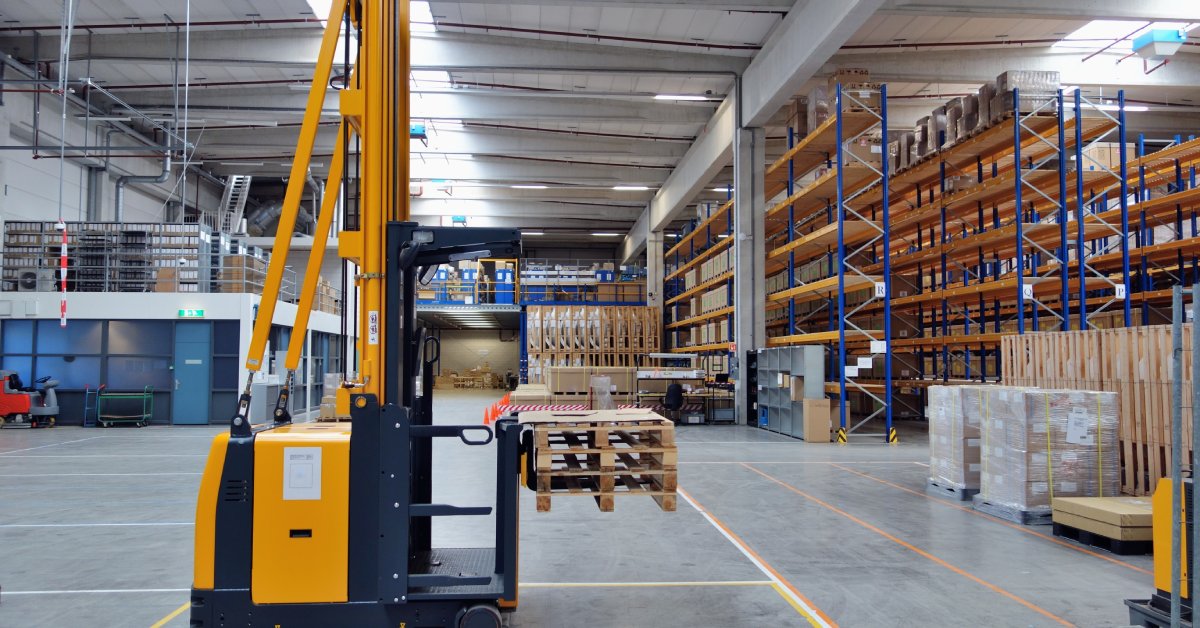- By First Alliance Logistics Management
- June 2, 2025
- Buying Pallets
Cross-docking is a powerful logistics strategy designed to streamline supply chain operations by minimizing handling time and storage needs. At the core of this efficient system lies a simple yet essential tool—the pallet. Learn why pallets are critical in cross-docking operations to ensure smooth and effective supply chain management.
Boosting Efficiency in Stock Movement
Pallets can optimize stock movement in cross-docking operations by providing a sturdy, uniform platform. This simplifies the handling of goods, allowing forklifts and other material-handling equipment to transfer shipments between inbound and outbound vehicles quickly. With pallets, loading and unloading can happen in minutes, cutting down on manual handling and reducing turnaround time. By minimizing delays, pallets ensure that products move swiftly through the system, making cross-docking more efficient.
Enhancing Load Stability and Safety
In cross-docking, rapid product transfers mean goods must remain stable and secure during movement. Pallets provide the necessary structure to prevent items from shifting or becoming damaged, ensuring load stability. This is particularly notable when using used wood pallets, which offer durability to keep shipments balanced and intact. Their strong design minimizes the risk of accidents and product damage, safeguarding employees and the products being transported.
Maximizing Space and Reducing Cost
Pallets optimize space within cross-docking facilities by standardizing sizes for efficient stacking and transport, ensuring better use of available space. This reduces clutter, streamlines workflows, and maximizes the facility’s capacity. Moreover, pallets lower handling costs by allowing bulk movement of goods instead of handling items individually. The reusability of wooden pallets further reduces costs, making them an economical choice for businesses aiming to improve cross-docking operations.
Supporting Sustainability in Logistics
Sustainability is a priority for the logistics industry, and pallets support eco-friendly practices. Wooden pallets, in particular, are highly recyclable, reducing the environmental impact of supply chain operations. By incorporating recyclable materials into their construction, pallets support sustainability efforts while optimizing storage and distribution. When used for cross-docking, they decrease a company’s carbon footprint by minimizing storage space and enabling faster product movement.
Achieving Reliability in Complex Supply Chains
The global nature of today’s supply chains demands reliability and consistency, which pallets provide. They are integral to standardized shipping practices, ensuring compatibility across various transportation methods, including trucks, ships, and airfreight. Pallets offer uniformity, making them critical in cross-docking operations. They enable smooth transfers throughout complex, interconnected supply chains.
Drive Success With First Alliance Logistics Management
Pallets form the backbone of efficient cross-docking systems, driving success in logistics operations. Their role in enhancing efficiency, ensuring load stability, optimizing space, and promoting sustainability proves that pallets are critical components in supply chain management. Contact First Alliance Logistics Management today to see how our pallet solutions can optimize your cross-docking operations and promote success.

